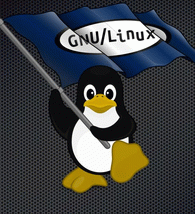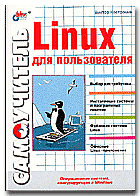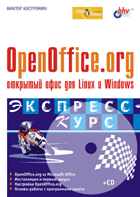Библиотека сайта rus-linux.net
The loosest kind of free-software license is one that grants unrestricted rights to copy, use, modify, and redistribute modified copies as long as a copy of the copyright and license terms is retained in all modified versions. But when you accept this license you do give up the right to sue the maintainers.
You can find a template for the standard X Consortium license at the OSI site.
The next least restrictive kind of license grants unrestricted rights to copy, use, modify, and redistribute modified copies as long as a copy of the copyright and license terms is retained in all modified versions, and an acknowledgment is made in advertising or documentation associated with the package. Grantee has to give up the right to sue the maintainers.
The original BSD license is the best-known license of this kind. Among parts of the free-software culture that trace their lineages back to BSD Unix, this license is used even on a lot of free software that was written thousands of miles from Berkeley.
It is also not uncommon to find minor variants of the BSD license that change the copyright holder and omit the advertising requirement (making it effectively equivalent to the MIT license). Note that in mid-1999 the Office of Technology Transfer of the University of California rescinded the advertising clause in the BSD license. So the license on the BSD software has been relaxed in exactly this way. Should you choose the BSD approach, we strongly recommend that you use the new license (without advertising clause) rather than the old. That requirement was dropped because it led to significant legal and procedural complications over what constituted advertising.
You can find a BSD license template at the OSI site.
The next most restrictive kind of license grants unrestricted rights to copy, use, and locally modify. It allows redistribution of modified binaries, but restricts redistribution of modified sources in ways intended to protect the interests of the authors and the free-software community.
The Artistic License, devised for Perl and widely used in the Perl developer community, is of this kind. It requires modified files to contain “prominent notice” that they have been altered. It also requires people who redistribute changes to make them freely available and make efforts to propagate them back to the free-software community.
You can find a copy of the Artistic License at the OSI site.
The GNU General Public License (and its derivative, the Library or “Lesser” GPL) is the single most widely used free-software license. Like the Artistic License, it allows redistribution of modified sources provided the modified files bear “prominent notice”.
The GPL requires that any program containing parts that are under GPL be wholly GPLed. (The exact circumstances that trigger this requirement are not perfectly clear to everybody.)
These extra requirements actually make the GPL more restrictive than any of the other commonly used licenses. (Larry Wall developed the Artistic License to avoid them while serving many of the same objectives.)
You can find a pointer to the GPL, and instructions about how to apply it, at FSF copyleft site.
The Mozilla Public License supports software that is open source, but may be linked with closed-source modules or extensions. It requires that the distributed software ("Covered Code") remain open, but permits add-ons called through a defined API to remain closed.
You can find a template for the MPL at the OSI site.






